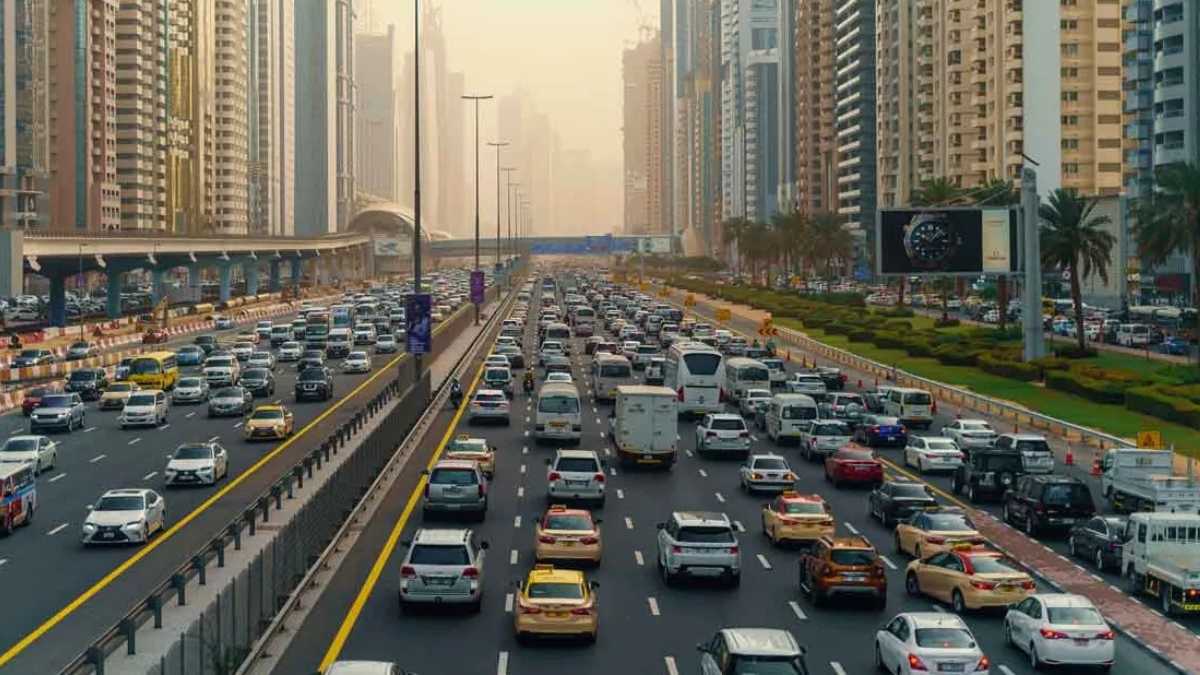In a landmark move, the United Arab Emirates (UAE) has announced significant changes to its traffic laws, sparking excitement among young drivers eager to hit the road. The most notable amendment? The minimum driving age for cars and light vehicles has been lowered from 18 to 17 years old. This change will provide new opportunities for younger drivers to obtain a driving license, but they will have to wait until March 29, 2025, when the new law officially comes into effect.
With this shift in regulations, the UAE is aligning itself with other forward-thinking nations that are promoting early driver education and safety initiatives. However, this is not the only change in the UAE traffic laws. The government has introduced a comprehensive set of amendments designed to modernize road safety measures, adapt to technological advancements, and further enhance traffic management across the country.
The New Driving Age: What You Need to Know
For years, the minimum legal age to drive in the UAE has been 18. This change brings the UAE in line with many other countries where 17-year-olds are allowed to take the wheel. By lowering the driving age, the UAE is providing youngsters with more mobility and independence, which can be particularly beneficial for educational and professional growth.
However, it’s important to note that while this change allows teenagers to drive earlier, the government remains committed to ensuring that safety is the top priority. Stringent testing and driving education programs will be emphasized to ensure that new, young drivers are well-prepared before they hit the road.
When Does the New Law Come Into Effect?
The change won’t be immediate. Although the announcement has been made, the new driving age law will not take effect until March 29, 2025. This means that teenagers who are 17 now will still need to wait a bit longer before they can legally drive. This waiting period allows the government time to implement necessary procedures and update the testing infrastructure to accommodate the younger age group.
Changes Beyond the Driving Age: Embracing Technology
The lowering of the driving age is just one part of the broader reforms to the UAE’s traffic laws. Another significant update relates to vehicle classifications. With the growing availability of electric and self-driving vehicles, the UAE has adapted its regulations to ensure that the registration, inspection, and licensing of these advanced vehicles are more streamlined.
As self-driving technology continues to evolve, the UAE is positioning itself as a leader in the adoption of autonomous vehicles. By updating the conditions for registering and licensing these vehicles, the government is fostering an environment that supports technological innovation while maintaining safety standards.
Tighter Rules for Pedestrians
Pedestrians will also see changes under the new traffic regulations. In a bid to improve safety, the UAE has introduced stricter rules on pedestrian crossings. Under the new law, pedestrians are prohibited from crossing roads where the speed limit exceeds 80 km/h. This measure is designed to reduce accidents and ensure that roads with high-speed traffic remain safe for all users.
Pedestrians who violate this rule by crossing such roads could face criminal charges. The government’s move to introduce harsher penalties for unsafe pedestrian behavior underlines its commitment to reducing road fatalities and ensuring that both drivers and pedestrians adhere to stricter safety standards.
Reducing Noise Pollution: Stricter Rules on Vehicle Noise
In addition to safety measures, the new traffic laws also focus on reducing noise pollution in urban areas. Vehicles that create excessive noise, whether through engine modifications or the misuse of alarms, will now be prohibited from operating within cities, except in cases where the noise is necessary to prevent accidents or alert others to danger.
This measure aims to improve the quality of life for residents in busy cities and towns, where noise pollution has been a growing concern. It will also ensure that the roads remain peaceful and that drivers use their alarms and other noise-making devices only when absolutely necessary.
Tighter Control on Hazardous Materials and Unusual Loads
Another significant amendment in the UAE traffic laws is related to the transport of hazardous materials and unusual loads. Moving forward, vehicles carrying such materials will require special permits issued by the relevant authorities. This change is aimed at enhancing public safety and preventing accidents related to the transportation of dangerous goods.
By requiring permits for hazardous materials, the UAE is taking a proactive approach to ensuring that all safety measures are in place before these materials are transported. This will help to mitigate the risks associated with dangerous goods and ensure that both drivers and the general public are protected.
New Penalties for Violations: Safety Takes Priority
With the introduction of these new traffic laws, the UAE has also outlined deterrent penalties for a wide range of violations. One of the most significant changes relates to accidents that result in the death of a person. In such cases, harsher penalties will now be imposed on drivers responsible for the fatality, especially if they attempt to escape the scene of the accident.
Other violations that will result in severe penalties include crossing the road from non-designated areas and driving in dangerous conditions, such as during floods in valleys. These changes highlight the government’s commitment to prioritizing safety and reducing the number of road accidents.
Conclusion: A Comprehensive Overhaul for Safer Roads
The recent changes to the UAE traffic laws mark a significant step forward in enhancing road safety and adapting to the country’s evolving transportation landscape. With the lowering of the driving age, the government is providing more opportunities for younger drivers while maintaining a strong focus on safety through updated regulations and rigorous testing.
The amendments to vehicle classification, pedestrian rules, noise pollution, and the transportation of hazardous materials ensure that the country remains at the forefront of innovation while protecting the well-being of its citizens.
As the UAE prepares for the future, these comprehensive changes will contribute to a safer, more efficient, and technologically advanced driving environment.













